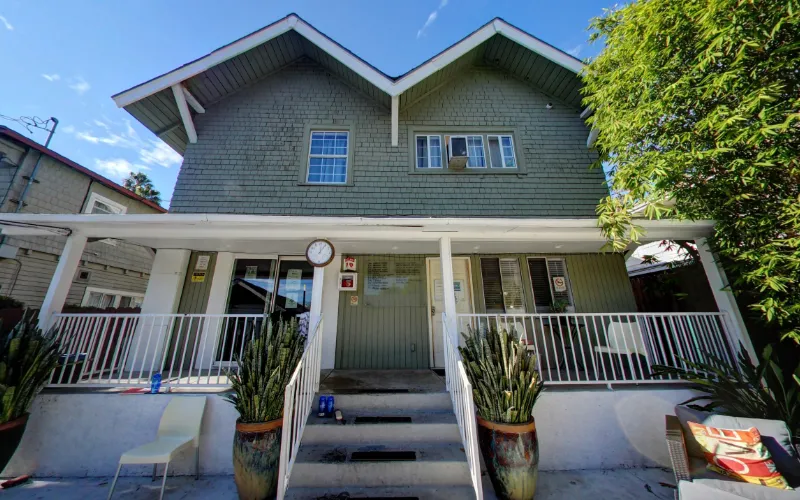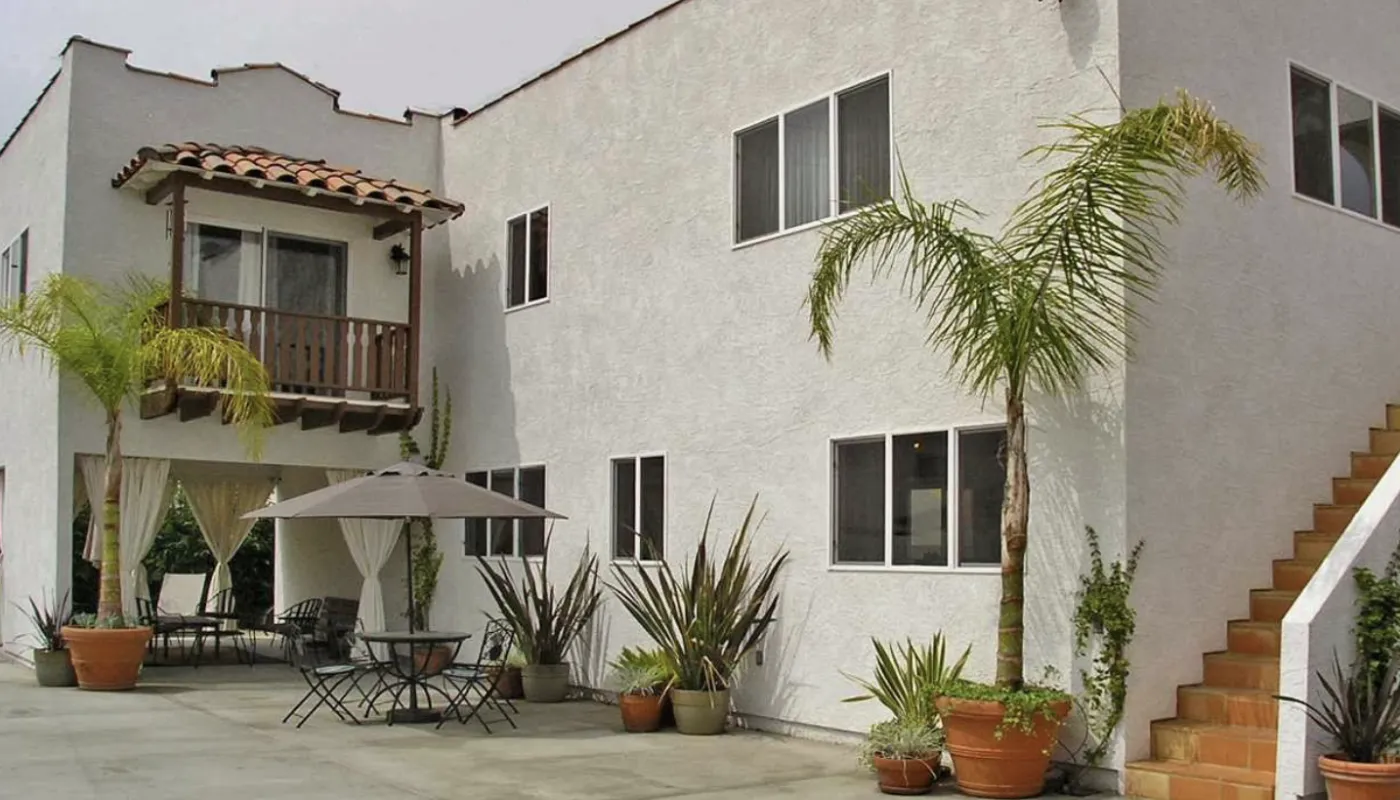MDMA addiction recovery combines therapy, education, and support to rebuild emotional and mental health. Programs address dependency, manage cravings, and repair the effects of prolonged use. Therapeutic methods such as CBT and mindfulness help individuals develop healthier coping mechanisms and foster sustainable recovery.
Ads
More Info
Advertisement Disclosure
Our website is funded by advertisers who pay for prominently labeled placements.
Read More99 Rehab Centers were found
Filters
Locations
- Los Angeles(+98)
- Culver City(+14)
- Westlake Village(+13)
- Woodland Hills(+11)
- Beverly Hills(+10)
- Santa Monica(+9)
- Sherman Oaks(+7)
- West Hollywood(+6)
- Malibu(+5)
- Chatsworth(+5)
- Pasadena(+5)
- Encino(+5)
- Redondo Beach(+4)
- Lancaster(+4)
- Reseda(+4)
- Studio City(+4)
- Northridge(+3)
- San Mateo(+3)
- Lynwood(+3)
- Vernon(+3)
- Van Nuys(+3)
- Tarzana(+3)
- North Hollywood(+3)
- Glendale(+3)
- Gardena(+3)
- Riverside(+3)
- Granada Hills(+2)
- Shadow Hills(+2)
- Venice(+2)
- Orange County(+2)
- Pomona(+2)
- West Hills(+2)
- Valley Village(+2)
- Burbank(+2)
- Brentwood(+2)
- Long Beach(+2)
- Sun Valley(+1)
- Torrance(+1)
- San Jacinto(+1)
- San Pedro(+1)
- Upland(+1)
- Whittier(+1)
- Toluca Lake(+1)
- Thousand Oaks(+1)
- Simi Valley(+1)
- Mission Viejo(+1)
- Acton(+1)
- Beaumont(+1)
- Wilmington(+1)
- Panorama City(+1)
- Anaheim(+1)
- Laguna Hills(+1)
- Inglewood(+1)
- Alhambra(+1)
- Rosemead(+1)
- Maywood(+1)
- Manhattan Beach(+1)
- Monterey Park(+1)
- Claremont(+1)
- Covina(+1)
- La Puente(+1)
- Pico Rivera(+1)
- San Fernando(+1)
- Azusa(+1)
- Santa Fe Springs(+1)
- Glendora(+1)
- Agoura Hills(+1)
- El Segundo(+1)
- Duarte(+0)
- Sunland(+0)
- Downey(+0)
- Cudahy(+0)
- El Monte(+0)
- Compton(+0)
- Hermosa Beach(+0)
- Cerritos(+0)
- Calabasas(+0)
- Bellflower(+0)
- Bell Gardens(+0)
- Avalon(+0)
- Arcadia(+0)
- Altadena(+0)
- Paramount(+0)
- South El Monte(+0)
- Walnut(+0)
- West Covina(+0)
- Santa Clarita(+0)
- San Gabriel(+0)
- San Dimas(+0)
- Rolling Hills(+0)
- Orange(+0)
- Hawaiian Gardens(+0)
- Palmdale(+0)
- Norwalk(+0)
- Montebello(+0)
- Lakewood(+0)
- South Pasadena(+0)
- Carson(+0)
- Hawthorne(+0)
Conditions
- Drug(+278)
- Alcohol(+219)
- Mental Health(+195)
- Opioid(+193)
- Cocaine(+184)
- Trauma(+180)
- Methamphetamine(+177)
- Benzodiazepines(+174)
- Heroin(+173)
- Prescription Drugs(+159)
- Depression(+152)
- Anxiety(+149)
- Xanax(+145)
- Synthetic Drugs(+138)
- PTSD(+133)
- Adderall(+131)
- Marijuana(+112)
- Bipolar(+109)
- Ecstasy(+104)
- MDMA(+99)
- Behavioral Health(+93)
- LSD(+93)
- Psychedelics(+91)
- Fentanyl(+71)
- Stress(+71)
- OCD(+69)
- Personality Disorders(+63)
- ADHD(+61)
- Gambling(+38)
- Eating Disorders(+35)
- Anorexia(+34)
- Binge Eating Disorder(+34)
- Bulimia(+33)
- Schizophrenia(+32)
- Gaming(+28)
- Internet Addiction(+27)
- Sex Addiction(+25)
- Burnout(+23)
- Pornography(+22)
- Shopping(+10)
- Narcissism(+8)
Insurances
- BlueCross BlueShield(+129)
- Aetna(+126)
- Anthem(+105)
- Cigna(+105)
- United Healthcare(+66)
- Humana(+63)
- Optum(+53)
- Medicaid(+53)
- MHN(+51)
- Magellan Health(+47)
- Kaiser Permanente(+39)
- Medicare(+31)
- GEHA(+31)
- ComPsych(+29)
- Highmark(+25)
- AmeriHealth(+13)
- Tufts Health(+11)
- Oscar(+9)
- CareFirst(+9)
- Molina Healthcare(+8)
- Intermountain Healthcare(+6)
- Beacon Health Options(+2)
- UMR(+2)
- NYSHIP(+2)
- ILWU(+2)
- Geisinger(+2)
- Empire Life(+2)
- Empire BCBS(+2)
- Bright Health(+2)
- GuideWell(+1)
Therapies

$45,000+ - 30-90 days

$30,000-$50,000

$1,000/day - 30+ days

$30,000

$20,000 - 30 days

$36,000 - $46,000 - 30+ days
MDMA Rehabs in Los Angeles
MDMA, also known as Ecstasy or Molly, is a synthetic drug that produces intense feelings of euphoria, emotional warmth, and heightened sensory perception. While many users believe it to be harmless, MDMA abuse can lead to serious psychological dependence, cognitive impairments, and long-term mental health issues. Frequent use depletes serotonin levels in the brain, causing severe mood swings, depression, and anxiety that persist even when the drug is no longer in the system.
Los Angeles has a growing problem with MDMA abuse, particularly among young adults and those involved in the party and festival scene. Many people find themselves caught in a cycle of repeated use, emotional crashes, and compulsive drug-seeking behavior, making professional treatment necessary to achieve long-term recovery.
How MDMA Affects the Brain and Body
MDMA works by flooding the brain with serotonin, the neurotransmitter responsible for mood regulation, pleasure, and social bonding. This chemical surge produces intense happiness, emotional connection, and a sense of well-being. However, once the effects wear off, the brain is left depleted, leading to emotional exhaustion, irritability, and depression.
Over time, repeated MDMA use can permanently alter brain chemistry, making it difficult for users to experience joy or emotional stability without the drug. Many people begin using it compulsively to chase the initial euphoria, but they find that the high becomes weaker while the negative after-effects grow stronger. Physical side effects include increased heart rate, high blood pressure, dehydration, and overheating, which can lead to dangerous medical complications.
Signs That MDMA Use Has Become a Problem
MDMA addiction does not always look like traditional drug dependence, as it does not cause the same kind of intense physical withdrawal as opioids or alcohol. However, psychological dependence can be just as destructive. Many people begin relying on MDMA to feel social, confident, or emotionally connected, making it difficult to function without it.
Warning signs of MDMA addiction include using more frequently than intended, feeling anxious or depressed when not using, and planning life around drug use. Many individuals experience memory problems, difficulty concentrating, and emotional numbness, making it hard to maintain relationships, school, or work responsibilities.
A major red flag is continuing to use despite negative consequences, such as experiencing extreme mood swings, health issues, or social isolation. Some users mix MDMA with alcohol, other stimulants, or hallucinogens, significantly increasing the risk of overdose, serotonin syndrome, or long-term cognitive damage.
The Challenges of MDMA Withdrawal and Detox
MDMA withdrawal is primarily psychological rather than physical, but that does not mean it is easy to overcome. Many users experience severe depression, anxiety, fatigue, and an inability to feel pleasure (anhedonia) in the days or weeks after stopping use. Some develop panic attacks or suicidal thoughts, as the brain struggles to regain balance without artificial serotonin stimulation.
Since MDMA withdrawal symptoms can last for weeks or even months, medical detox and psychiatric support are essential. Supervised detox programs in Los Angeles help individuals safely transition through withdrawal, addressing the emotional lows and cognitive impairments associated with quitting MDMA. In some cases, medications for anxiety and depression may be used to stabilize mood while the brain heals.
Therapy and Treatment for MDMA Addiction
Since MDMA addiction is primarily psychological, therapy plays a central role in recovery. Many people turn to MDMA as a way to mask emotional pain, trauma, or social anxiety, so treatment focuses on identifying and addressing the root causes of addiction.
Cognitive Behavioral Therapy (CBT) helps individuals recognize thought patterns that contribute to drug use, replacing unhealthy behaviors with positive coping mechanisms. Motivational Enhancement Therapy (MET) strengthens the commitment to sobriety, helping individuals find meaning and motivation outside of drug use. Group therapy provides a sense of connection and support, which can be especially important for those who previously relied on MDMA for social bonding.
Many individuals recovering from MDMA addiction struggle with emotional numbness, social anxiety, and difficulty feeling joy, making holistic approaches essential. Mindfulness techniques, meditation, and creative therapies like art or music therapy help rebuild emotional stability and self-awareness. Physical activities such as yoga or outdoor therapy help restore natural dopamine and serotonin levels, supporting long-term mental health recovery.
MDMA and Mental Health: The Risk of Long-Term Damage
Frequent MDMA use can have lasting effects on mental health, particularly for those who are already predisposed to anxiety or depression. Many users develop chronic mood disorders, panic attacks, or memory problems that persist long after stopping use. Some experience drug-induced depersonalization or derealization, where they feel disconnected from themselves or reality.
Dual diagnosis treatment is often necessary for individuals struggling with both MDMA addiction and mental health conditions. Los Angeles rehab centers specializing in hallucinogen and stimulant addiction provide psychiatric care, trauma therapy, and cognitive rehabilitation to help individuals recover both emotionally and neurologically.
Life After MDMA Rehab
Recovery from MDMA addiction is a long-term process, as the brain takes time to heal from serotonin depletion and neurochemical imbalances. Many individuals need ongoing therapy, lifestyle adjustments, and social reintegration support to maintain sobriety. Developing a structured routine, building healthy relationships, and engaging in fulfilling activities are crucial for avoiding relapse.
Aftercare programs in Los Angeles provide continued therapy, support groups, and relapse prevention strategies to help individuals navigate life without MDMA. Sober social events and community-based recovery programs allow individuals to rebuild their social lives without relying on drugs for connection. Many rehab centers also offer education on the risks of MDMA and harm reduction strategies, ensuring individuals have the knowledge to make healthier choices moving forward.
Finding the Right MDMA Rehab in Los Angeles
Choosing the right treatment program depends on the severity of addiction, individual needs, and personal treatment goals. Some individuals require inpatient rehab for structured care and 24/7 support, while others benefit from outpatient programs that allow them to continue working or attending school. For those experiencing severe depression, anxiety, or cognitive issues, dual diagnosis treatment is essential for addressing both addiction and mental health recovery.
Speaking with a treatment specialist can help individuals and families find the most effective rehab program for overcoming MDMA dependence. With the right support, individuals recovering from MDMA addiction can restore their mental health, rebuild relationships, and find fulfillment in life without the need for artificial highs.
Frequently Asked Questions
How long does MDMA rehab take?
Can MDMA cause permanent brain damage?
Is MDMA withdrawal dangerous?
Does insurance cover MDMA rehab in Los Angeles?
Ads
More Info
Advertisement Disclosure
Our website is funded by advertisers who pay for prominently labeled placements.
Read More





































